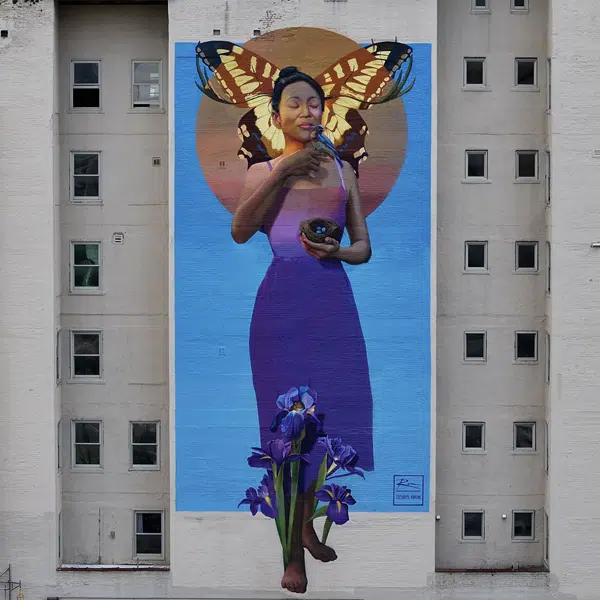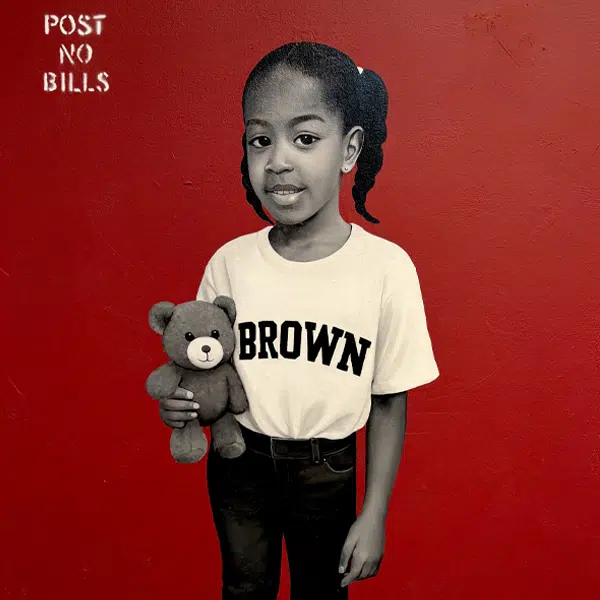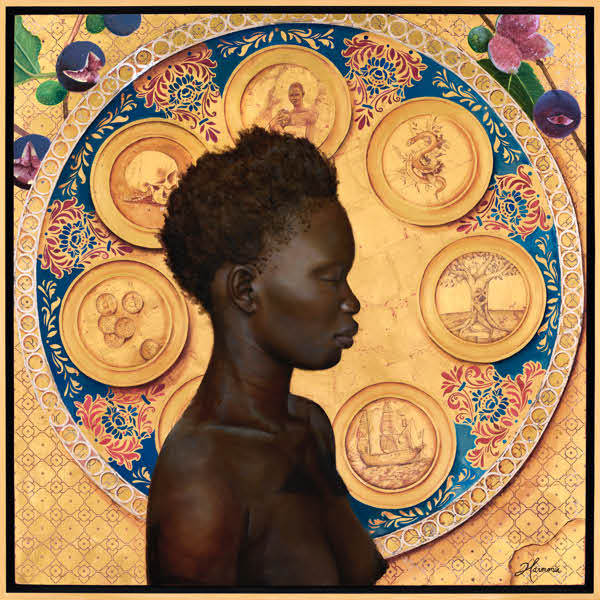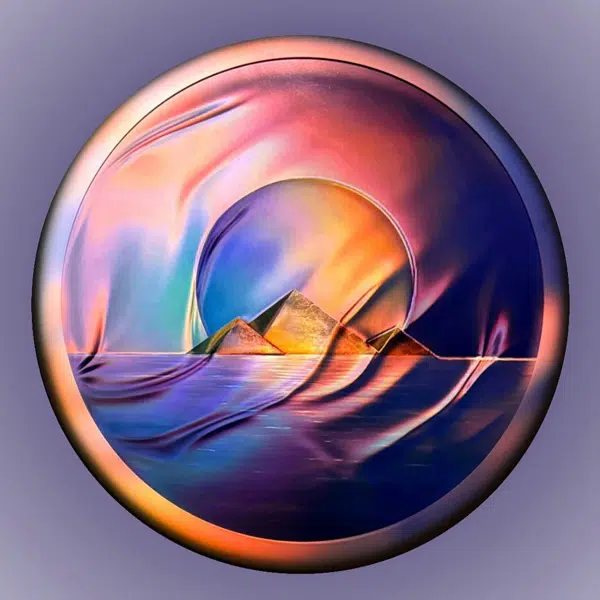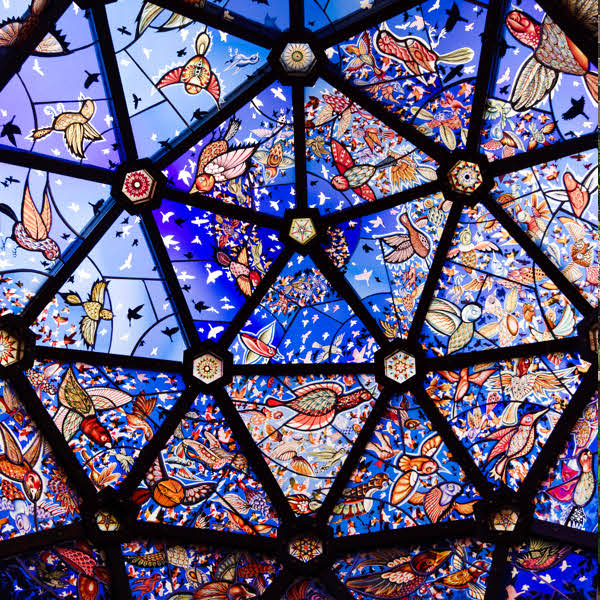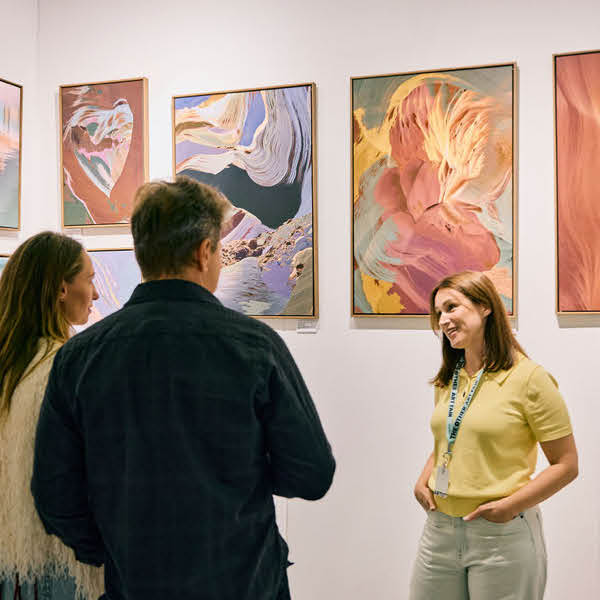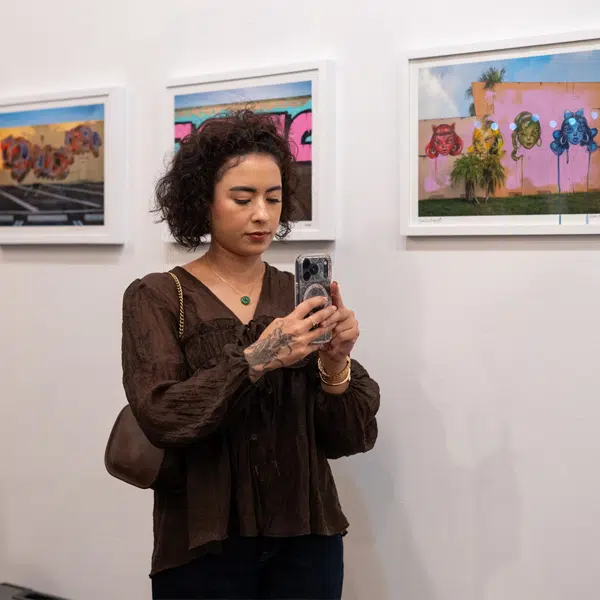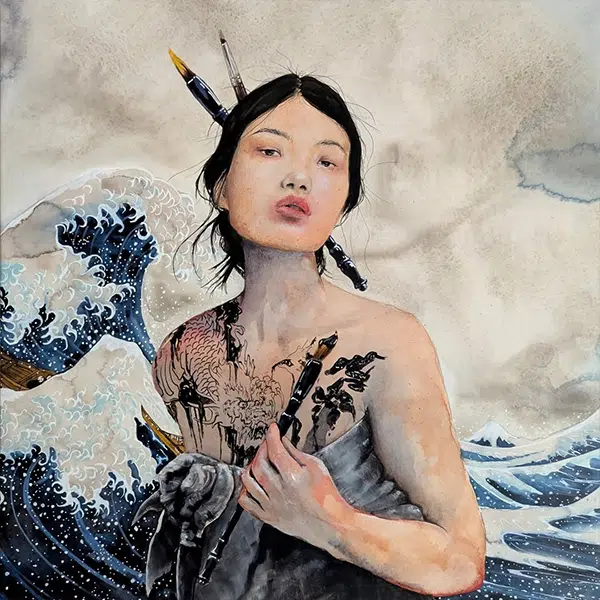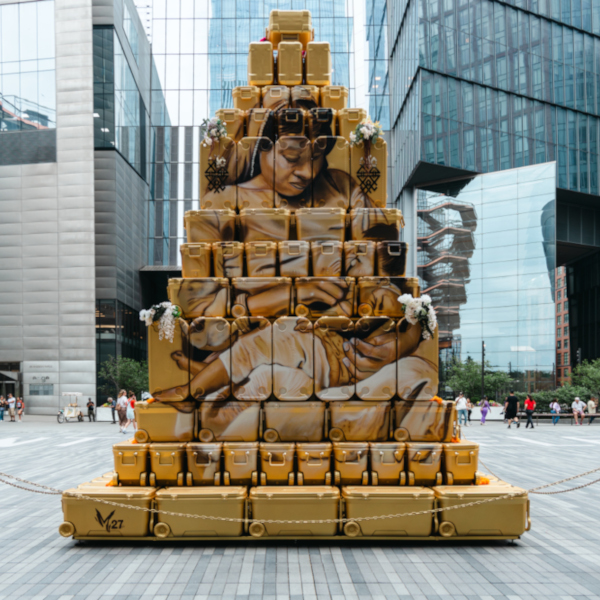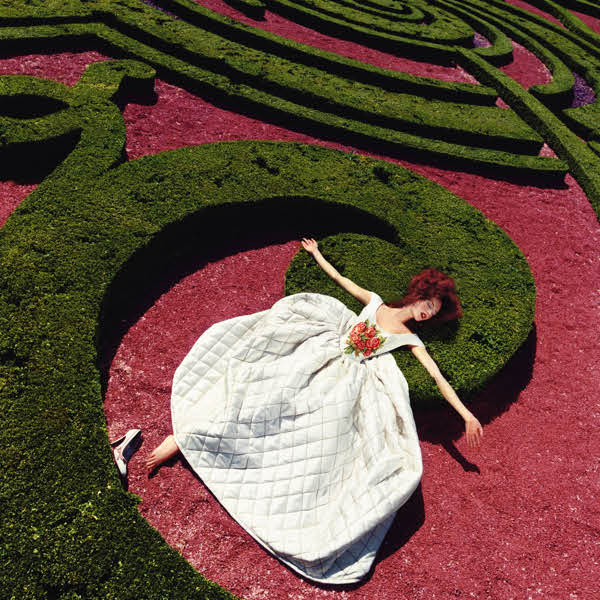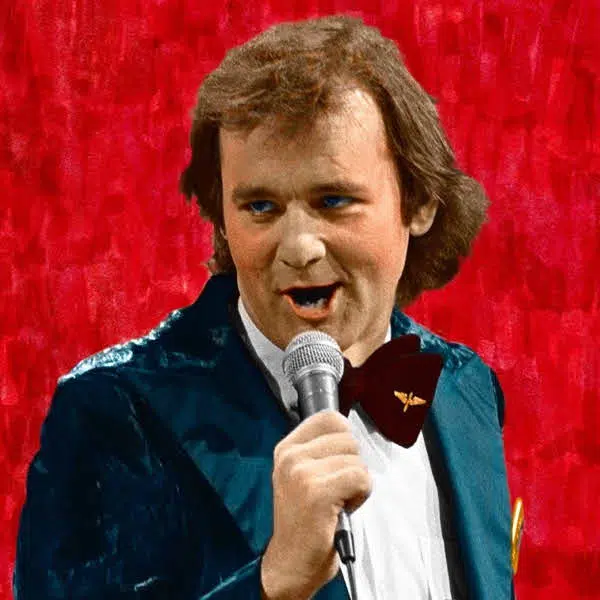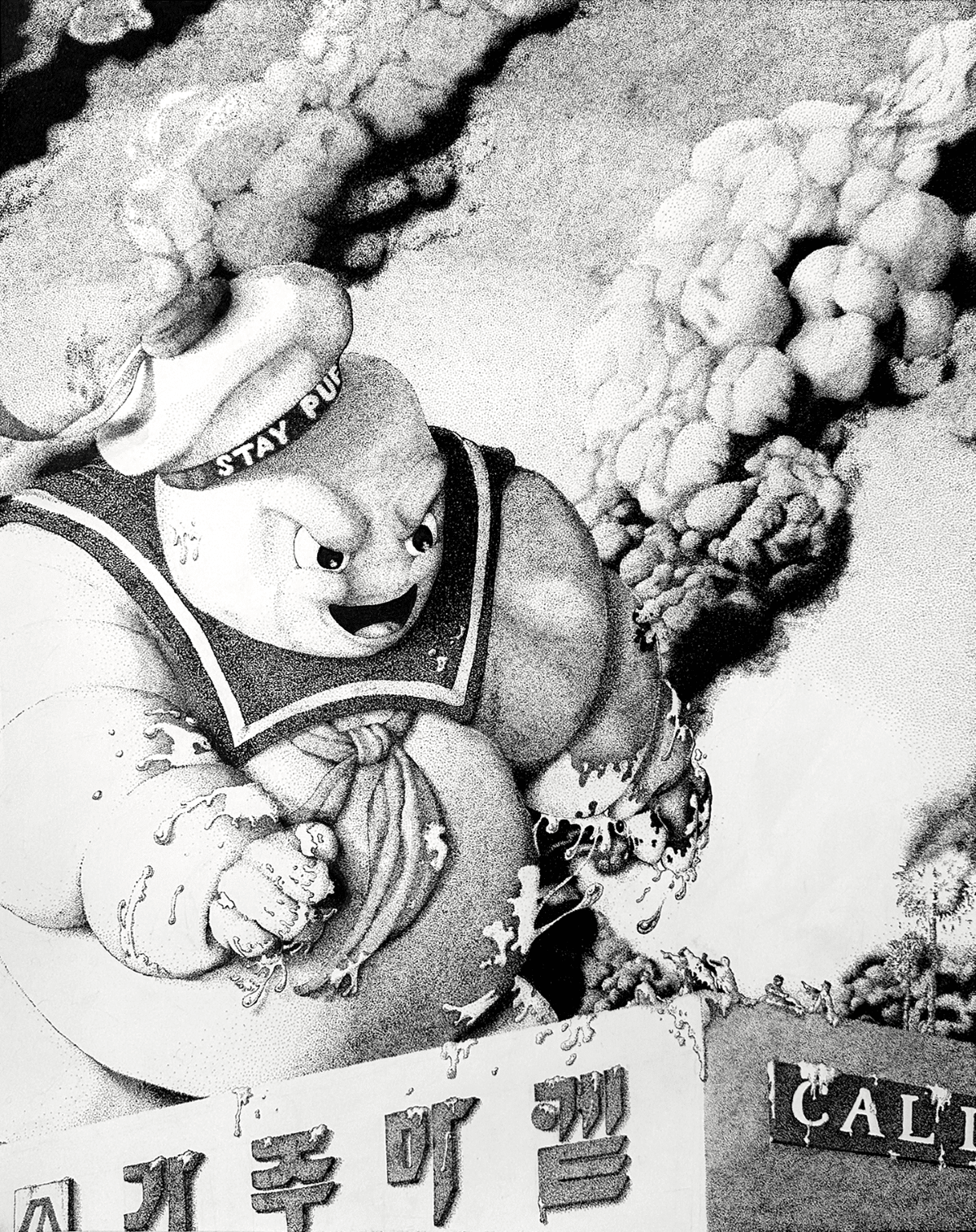
“Remembering LA 1992” Ink on paper. 2021.
Los Angeles-based artist YBZ is known for his detailed pen drawings, created with a stippling technique that requires patience and creative vision. Inspired by pop culture and history, he draws on his Korean heritage to produce imagery that plays on themes of diaspora, identity, and migration.
Whether looking to historic Korean paintings or recalling the films of his youth, YBZ incorporates these symbols into a style that is uniquely his own. Producing these intricate drawings while still working a day job, YBZ manages to make his creative voice heard. And though he's put down his pen recently in favor of oil painting, we were intrigued to learn more about his drawings.
Read on for My Modern Met's exclusive interview to learn more about what inspires his work and where he sees his future artistically.
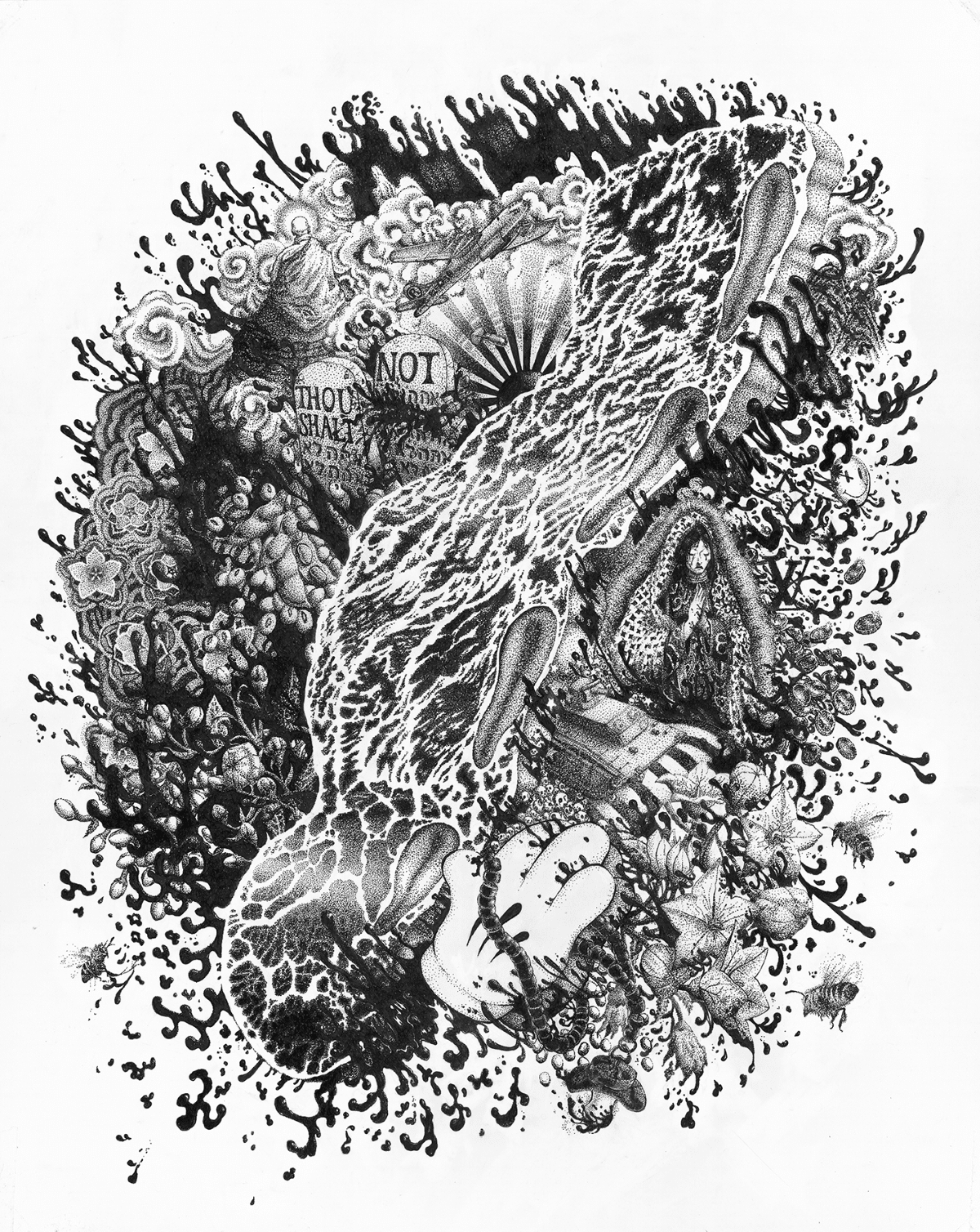
“The Genealogy of LA Galbi” Ink on paper. 2023.
How did you develop your style?
This particular style of stippling or using dots is typically associated with craft-type art, which I think plays into the themes I’m working with such as diaspora, migrations, immigrant communities, and the idea of “making something out of nothing.” It’s accessible and economical: all it takes is a pen, some paper, and putting in the work.
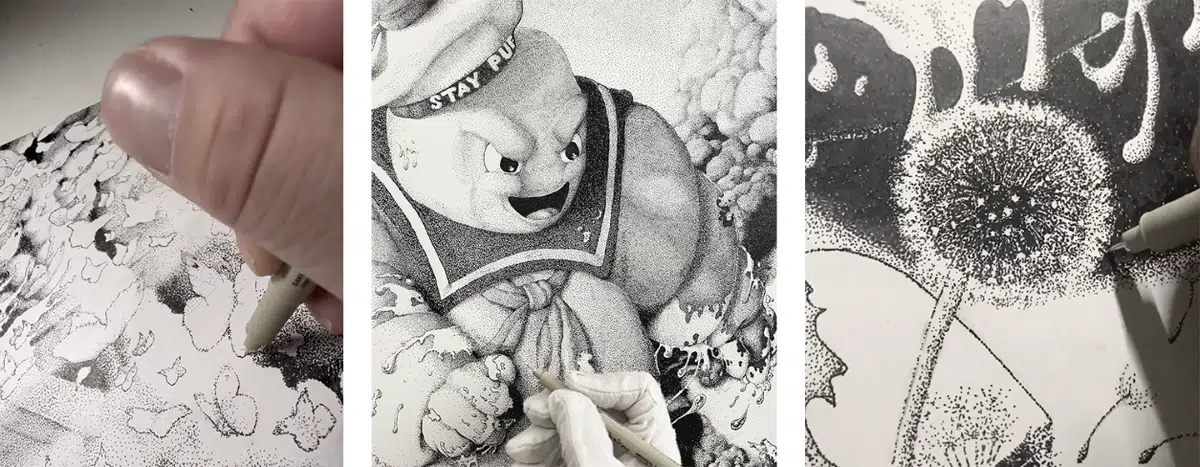
How long, on average, does it take to complete a drawing?
For one of them, Yin Yang Final Fantasy / Hwajeopdo, I tell people it took about 700 years. This is because it’s based on a Korean folk painting motif of butterflies and flowers (Hwajeopdo), which was very common in the Joseon Dynasty of Korea (1300-1900). The version I’ve done, however, is re-contextualized in Los Angeles in the year 2024.
So, the original style of painting had to happen some centuries ago. Then, the Korean diaspora to America had to happen throughout the 1970s to 1980s. Then, of course, I had to complete my version of it this past year. So, yes, it took centuries for it to happen. But really, to complete my end of the bargain, it took me about one year—off and on—to complete. I’m not a full-time artist. Unfortunately, I have a job and bills to pay. If I dedicated all my time to these drawings, they might take me two to six months each.
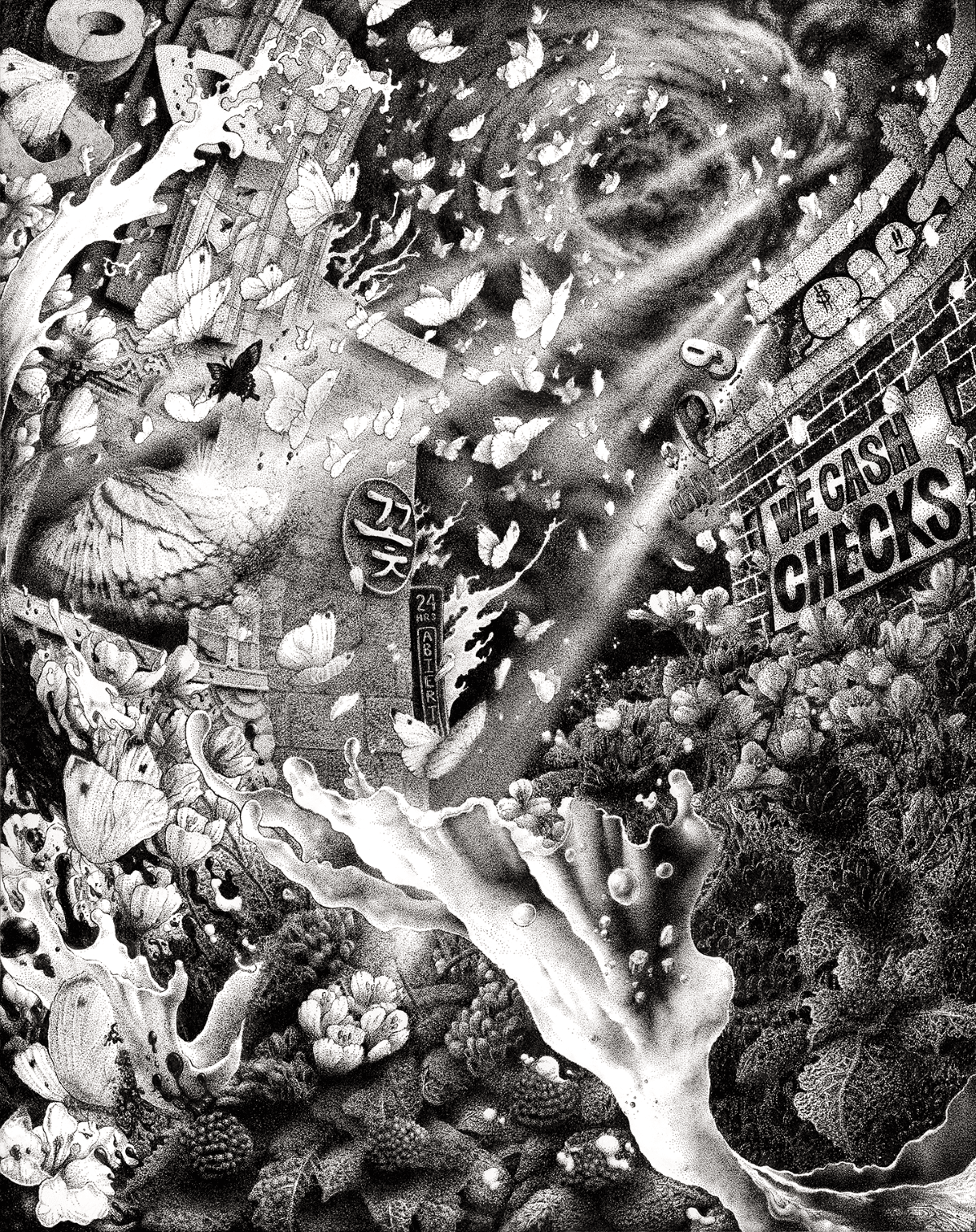
“Yin Yang Final Fantasy” Ink on Paper. 1300-2024.
What inspires your compositions and the themes you focus on?
In retrospect, some of the themes I’m interested in are “change throughout time” and “the framing of time.” The identity aspect of what I do is sort of a vehicle for these more fundamental themes. So, rather than call these “art” or “drawings,” I like to think of them as “histories,” “documentaries,” and “ciphers.” But instead of presenting facts or “truth,” I rather present a type of transformative truth.
For instance, in Remembering LA 1992, I’m directly referencing the 1992 LA Riots and specifically the infamous “Rooftop Koreans” who armed themselves to protect against the looting and destruction of Koreatown, Los Angeles. I titled it as if I am “remembering” those events in such a way, which is obviously not actually how it happened. But since those events—Ghostbusters (1989) and The LA Riots (1992)—both happened to me as a young kid, my brain tends to mix up the two as sort of a false memory or remembering.
It’s essentially a psychological framing. Really, what I’m pointing to is the inherent error of trying to explain the past (or pretending that one’s explanations are true)—something I felt compelled to do because I didn’t really like how these Korean immigrants were being framed in the sort of binary ways our culture likes to do to push their own ideological agendas. Of course, everyone is free to have their own framing of events, but when those frames are disguised as indisputable truth, it shows a lack of understanding of what history or truth is. In short, I try to tell the truth even when I lie.
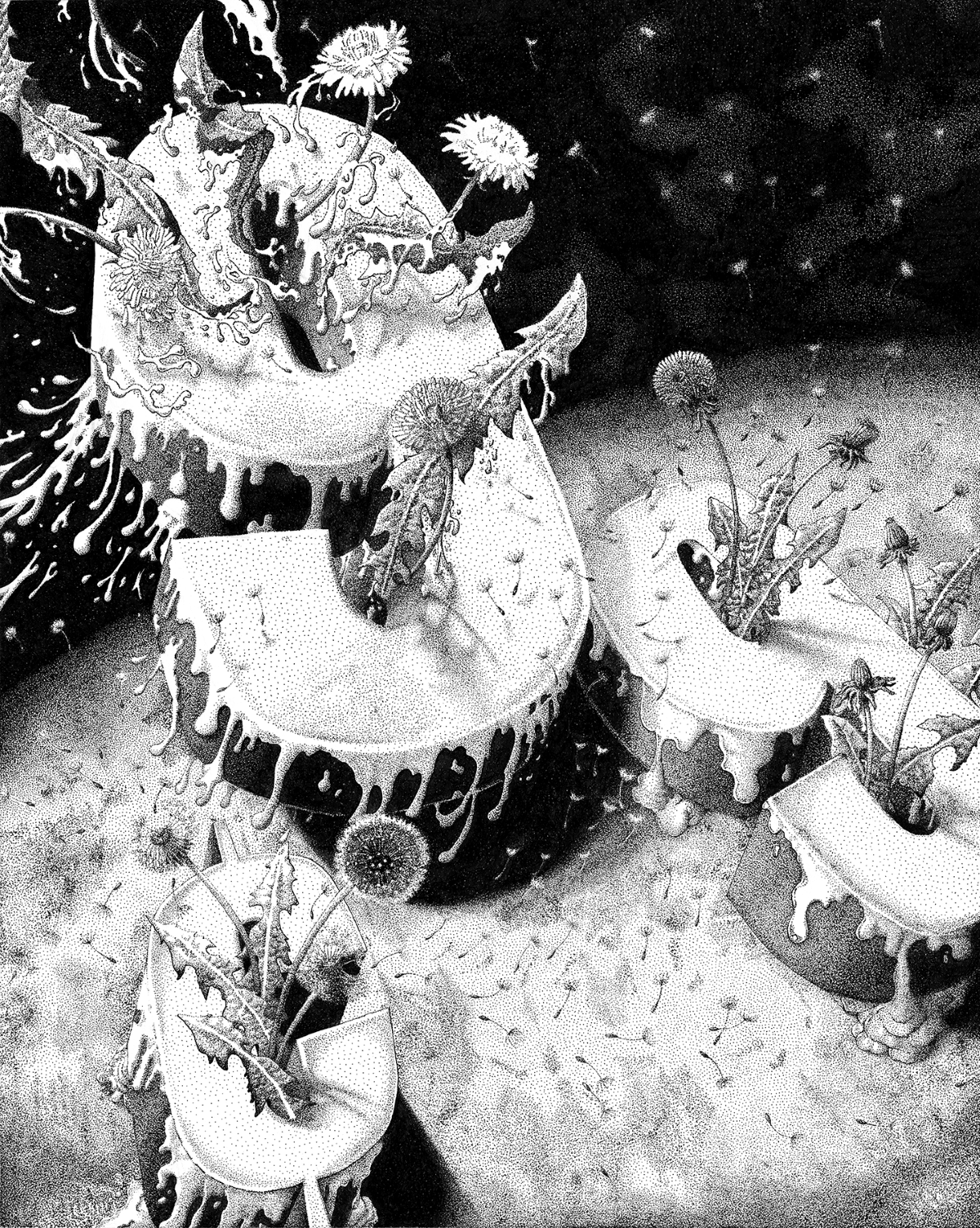
“Revolutions” Ink on paper. 2021.
What do you hope that people take away from your work?
I once watched a video where the graphic novelist Alan Moore said something like, “When you do something without fear of failure and without expectation of success…this is the most honest thing you can do.” I like this type of mindset. There’s a humbleness about it but also an acknowledgment of this thing that you have to do—like you don’t have a choice in the matter. I do try to stay relative to issues happening today, but I also sometimes think I’m speaking for ghosts and have future concepts where I might be speaking to the unborn. I try to keep an open mind.
What’s next for you?
Unfortunately or fortunately for me, I’ve moved on from this drawing technique. I’ve recently started in larger format oil painting. So, in the next year or two, I hope to complete a series of paintings where these concepts really evolve and take shape. While acknowledging that how we frame the past affects the future, I will be gradually moving towards what that future looks like in the coming years.











































































